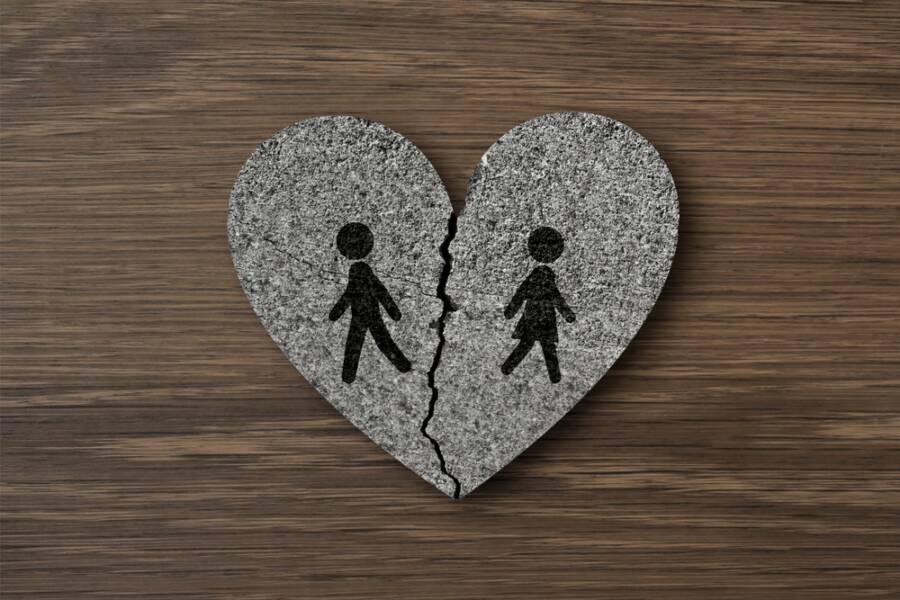People lose interest all the time… but what happened?
When a couple calls it quits, no matter how it happens, one or both of you are left feeling pretty rotten. But one of the hardest ways a relationship can end is not with tears or a massive blowout.
It’s when your partner doesn’t have an explanation and simply loses interest in the relationship. Sometimes, people just change.
Other times, it might be down to something you do, hurting the other person or distancing yourself, which leads them to drift out of the relationship. But unless they give you a reason why, it’s important not to be too thoughtless if your partner loses interest.
Regardless of the cause, what’s important is that the person “left behind” doesn’t try and change themselves as a result. If parts of you pulled your partner away, maybe it’s time to look within, but don’t make any sudden changes simply because one person lost interest.
So if you feel like there’s a pattern of people you’re seeing losing interest, maybe it’s time to look inward, but remember that things can happen for so many reasons.
So, on that note, we talked to the experts. Here are 6 reasons they say people lose interest suddenly in a relationship.

Life stressors
Sometimes, the pressure isn’t from within the relationship itself but outside of it. Family issues, work stress, or financial troubles don’t just disappear when you get home. They stick to you, affecting how you interact with your significant other.
A person overwhelmed by stress might withdraw, not because they’ve lost interest in a partner, but because they’re trying to cope with these external forces.
The relationship then suffers as a result, not from a lack of love but from a lack of space to breathe and deal with pressing issues. Tension acts like a fog, making it hard to see the person standing in front of you.
Your partner becomes another “task” rather than a support system. And when you’re in survival mode, everything else, including your relationship, takes a backseat.
The challenge here is recognizing that the relationship can be a place of comfort, not another source of stress. Without that realization, the distance can increase, leading to a loss of interest in maintaining the connection.
Not feeling appreciated
Feeling appreciated is like the sunshine for the soul, right? Everything begins to wilt without it in a relationship. When someone feels as though their efforts go unnoticed or their presence is taken for granted, it chips away at a union.
Appreciation is more than just a simple thank you. It’s about recognizing the thoughtfulness, the effort, and the care. It’s also about seeing and acknowledging the person behind the efforts.
Without this praise, disconnection sets in, and the passion to invest in the relationship diminishes. This lack of appreciation can also lead to questioning self-worth and the importance one brings to the relationship.
If someone constantly asks themselves, “Am I valued here?” or “Do my efforts even matter?” it’s a slippery slope. These questions aren’t just about looking for validation.
They’re about seeking a sign that the relationship is a two-way street where both partners uplift each other. When this balance is lost, so is the interest in maintaining the relationship.

Being too clingy
Everyone values a bit of independence in a relationship. So, when one partner becomes too clingy, it can feel like the other is suffocating. For many, having space and some level of independence is crucial.
It’s not about wanting to be away from their spouse but maintaining a sense of self. An overdependent mate can accidentally send the message that they lacks confidence or trust in the relationship, leading to feelings of being caged in.
Also, overdependence can stem from insecurities that put stress on the relationship. Think about it: it’s like holding sand too tightly. The harder you grip, the more it slips away. A healthy relationship will always allow both people to grow independently AND together.
When that balance tips a bit too far towards dependence, it can stifle the connection, making someone feel like they’ve lost their independence and the dynamic, equal partnership they value.
Incompatibility
At the beginning of every relationship, everything seems like a dream. But as time goes on, the rose-colored glasses begin to slowly come off. Suddenly, those adorable quirks aren’t cute anymore, and the differences in interests, values, and life goals become very obvious.
Incompatibility isn’t about the small stuff, like different tastes in food. It’s about the big picture: what you want from life, how you view the world, and how you love. When a person realizes that his path splits significantly from his partner’s, the sense of companionship fades out.
Unmet expectations add another layer of intricacy. You may be envisioning a future with specific shared goals, only to find that those aren’t shared. It’s not just about wanting different things, though.
It’s also about the realization that the foundation you believed you were building on isn’t as trustworthy as you thought. This acknowledgment can lead to a deep sense of disillusionment.
When the future you pictured together looks more like a solo trip, the motivation to stay in the relationship can quickly vanish.
Fear of commitment
That pesky fear of commitment is like standing at the edge of a cliff, looking down into the unknown. We get it! It’s terrifying and exciting all at once. For some people, the deeper the relationship gets, the more this fear sets in.
It’s not necessarily about not wanting to be with their spouse. But rather about the anxiety of what committing fully ACTUALLY means. Will they get enough freedom, or will everything change now? This fear can cause a person to pull back when things get a bit too real.
Commitment means being vulnerable, and that’s a pretty big step if you stop to think about it. It’s about letting someone in, flaws and all, and trusting them not to walk all over you. That’s some heavy stuff.
So, when a person begins to feel like they’re not ready to take that plunge, their interest in the relationship might weaken. The key here is understanding and communication. But without addressing this fear head on, it can become a hurdle too significant to get over.

Growing apart
Hey! It happens! Sometimes in life, there isn’t any clear-cut reason or dramatic moment, and people simply grow apart. As we evolve, our beliefs, interests, and desires can change. What used to be a shared journey could end up feeling like parallel paths that seldom intersect.
A person may realize that the conversations no longer flow, and the shared laughter has decreased. This gradual drift isn’t anyone’s fault. It’s a natural advancement of personal growth.
Recognizing that you’ve grown apart can lead to a reassessment of the relationship, questioning whether or not the connection that used to be strong still holds the same power. The realization of growing apart usually comes with a sense of sadness.
After all, you’ll be mourning the relationship’s heyday and the understanding that recapturing that magic isn’t as easy as turning back time.
The effort to bridge the gap might seem hopeless, leading to a slow withdrawal of emotional investment and, eventually, interest in maintaining the relationship as it once was.
If you decide that going your separate ways is the best way to go, all you can do is work on yourself and your self worth to be the best YOU you can be!
So why do YOU think people lose interest in a relationship? Be sure to let us know in the comments section below. And if you found this article interesting, we also recommend checking out: 8 Body Language Signs Saying He’s Not That Into You

2 responses
i don’t really know whats happen to my realationship but it started twp years ago,he started coming home at 700 pm and leaves the house at 600 am.i trying calling him and he never answers my calls or texts.He states that he never heard the phone when before he would answer with no problems.never wants to talk about anything.He does not even talk to me turns his back on me i ask him whats wrong nothing why.
I feel that relationships get strained by social media and people that are desperate to try to get the attention of a beautiful woman and I feel that men have no morals and that they shouldn’t be reaching out to women that are in a committed relationship I feel it’s wrong I don’t care how much the woman puts herself out there it’s just the age of social media destroys relationships